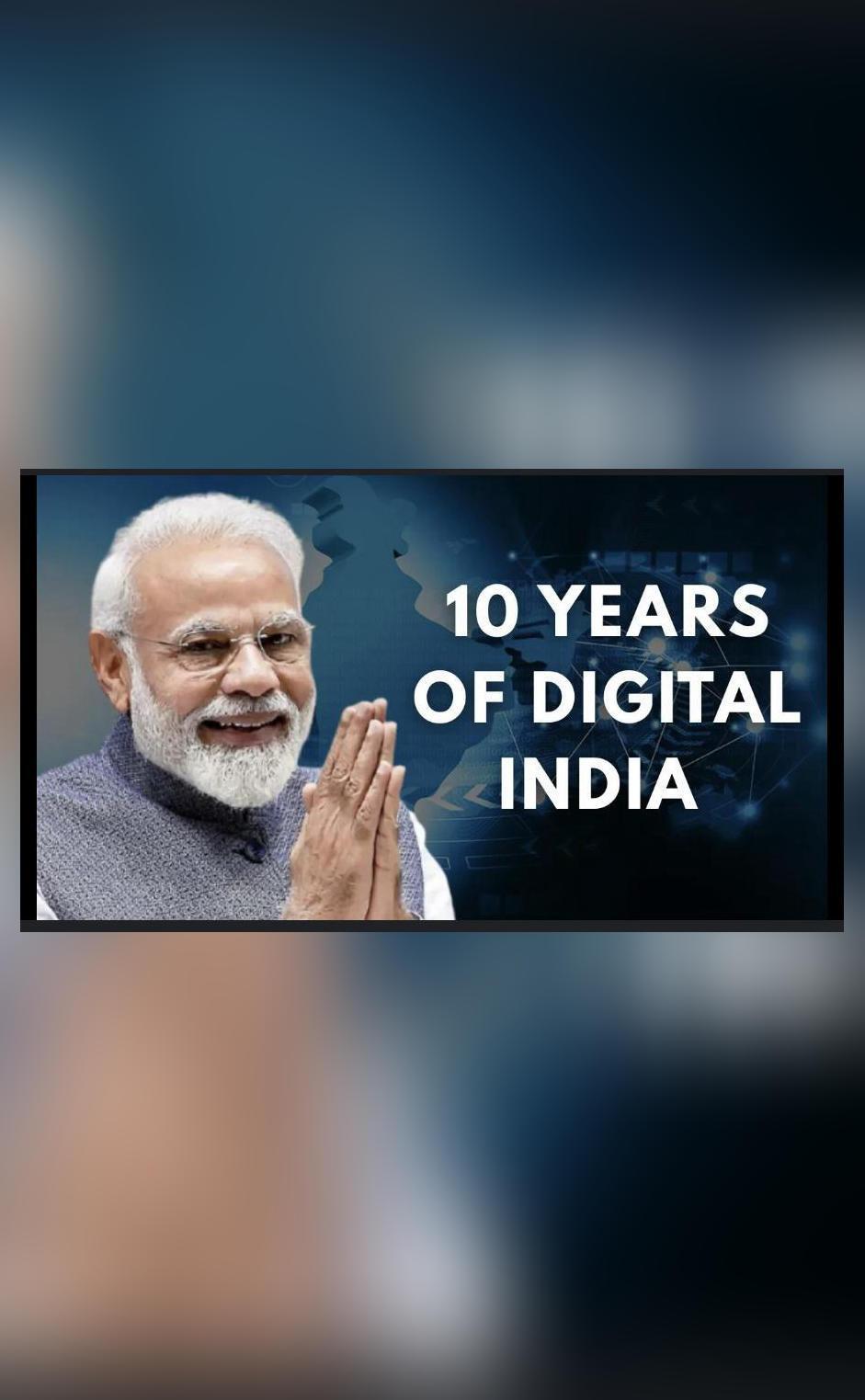
10 Years of Digital India: Milestones in Tech, Health & Education
September 17, 2015, marked the beginning of a new era in India’s digital journey, as Prime Minister Narendra Modi launched the ‘Digital India’ initiative. The ambitious project aimed to transform India into a digitally empowered society and a knowledge economy. Today, as we celebrate 10 years of Digital India, it’s time to take stock of the incredible progress made in various sectors, including technology, healthcare, and education.
In his address on the 10th anniversary of Digital India, Prime Minister Modi highlighted the significant strides made in key areas. He emphasized that Digital India has not only connected the country but also empowered its citizens. The PM also reiterated the government’s commitment to harnessing technology for the betterment of society, focusing on education, healthcare, MSMEs, and Artificial Intelligence (AI).
Education: A Digital Leap
The Digital India initiative has had a profound impact on the education sector. With the launch of initiatives like e-Pathshala, an online platform for educational resources, and e-Paathshala, an online platform for education and learning, the government has made quality education more accessible to students across the country. Online courses and degree programs have also become increasingly popular, bridging the gap between rural and urban areas.
The Digital India initiative has also enabled the creation of digital infrastructure, such as digital classrooms and digital libraries, which have improved the overall learning experience. The National Digital Library of India, launched in 2016, has made over 50 million books and other educational resources available online, making it one of the largest digital libraries in the world.
Healthcare: A Digital Revolution
The healthcare sector has also witnessed significant growth under the Digital India initiative. Telemedicine services have become increasingly popular, enabling patients to consult doctors remotely and receive medical attention without having to physically visit hospitals. The government’s Ayushman Bharat Digital Mission aims to create a comprehensive digital health ecosystem, making it easier for patients to access healthcare services.
The Digital India initiative has also enabled the creation of electronic health records (EHRs), which have improved patient care and reduced medical errors. The government’s efforts to promote digital payments in healthcare have also made it easier for patients to receive medical attention without worrying about cash transactions.
MSMEs: Empowering Small Businesses
The Digital India initiative has also had a significant impact on Micro, Small, and Medium Enterprises (MSMEs). Platforms like the Government e-Marketplace (GeM) have been created to empower local sellers and promote e-commerce. The Open Network for Digital Commerce (ONDC) has also been launched, allowing small businesses to sell their products and services online.
The government’s efforts to promote digital payments and e-commerce have also enabled MSMEs to expand their customer base and increase their revenue. The Digital India initiative has also created job opportunities in the e-commerce sector, empowering small businesses and entrepreneurs.
AI: A Humanity-First Approach
The Digital India initiative has also focused on Artificial Intelligence (AI), with the government launching a $1.2 billion AI Mission to promote AI research and development in the country. The mission aims to develop AI applications that are socially relevant, humane, and beneficial to society.
The government’s approach to AI is unique, as it focuses on developing AI applications that are humanity-first, rather than just focusing on technological advancements. This approach is reflected in initiatives like the AI-powered chatbot, which helps citizens access government services and information.
Conclusion
As we celebrate 10 years of Digital India, it’s clear that the initiative has had a profound impact on various sectors, including technology, healthcare, education, and MSMEs. The government’s commitment to harnessing technology for the betterment of society is evident in its efforts to promote digital literacy, create digital infrastructure, and empower small businesses.
As India looks to the future, it’s clear that the Digital India initiative will continue to play a crucial role in transforming the country into a digitally empowered society. With a focus on education, healthcare, MSMEs, and AI, India is well on its way to becoming a leader in the global digital landscape, while prioritizing a humanity-first approach to technology.
Source:






